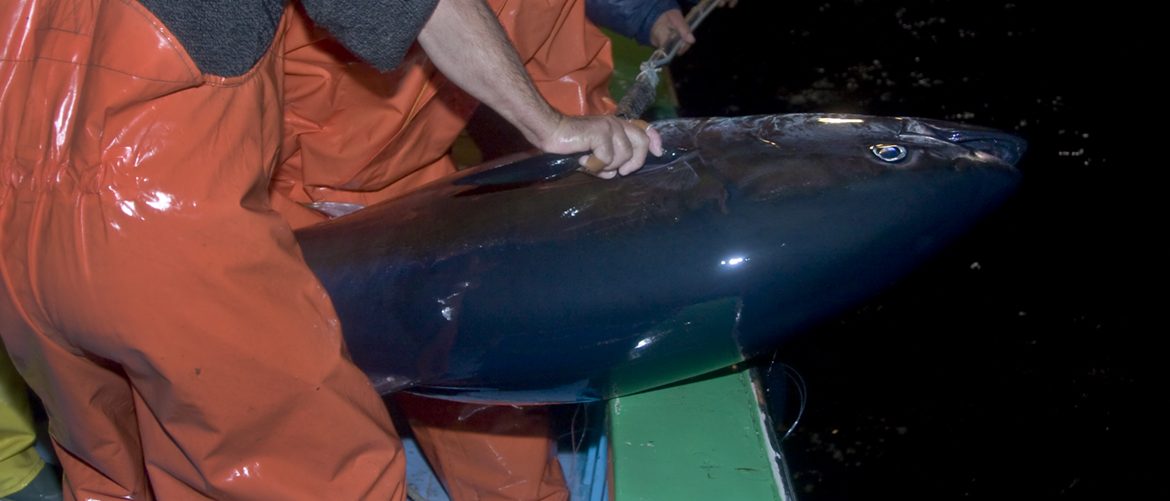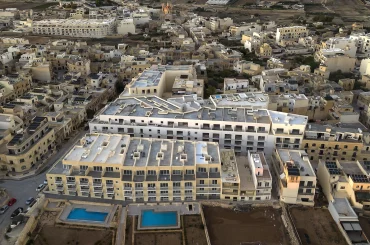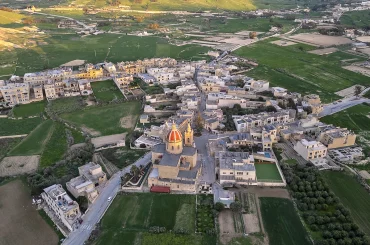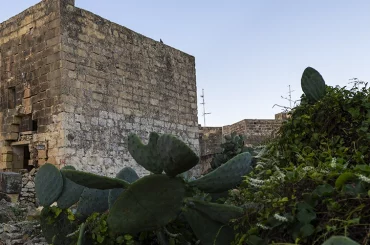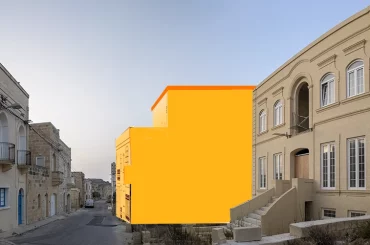Key Findings
- Intensity of fishing operations for tuna fattening industry impedes traditional fishermen
- Italy implemented rules against quota transfers to protect traditional fishermen, Malta did not despite junior minister’s critical take in 2016 paper
- In 2016 paper, junior minister wrote that government "surveillance" of fishing by traditional tuna fishermen is intended to dishearten them from fishing, and "encourage them" to transfer their quota to tuna farms
- Government granted land to tuna industrialists to build premises for storing fish fed to tuna and processing tuna remains after slaughter into secondary products
- Mackerel fishermen under greater pressure as price of mackerel, mostly sold as tuna feed, falls to 25 cents per kilo
- Malta’s quota of wild input of tuna in farms this year reached almost half of EU’s total amount
- Energy loss in feed conversion and high fuel consumption makes tuna fattening industry energy-intensive and unsustainable
Last month I spent many hours satellite-tracking vessels involved in tuna fishing in a bid to corroborate information or allegations from multiple sources about illegal tuna fishing to the south of Malta near Libya. This was for an investigation by this website and partners in Italy (IRPImedia) and Spain (Merca2), in which we also revealed that court proceedings into a multimillion tuna smuggling racket had stalled in Spain and Malta.
Tracking vessels and their interactions with other vessels made me comprehend the scale and intensity of the fishing activity: a large number of boats – catching vessels, towing vessels, support vessels – making a jumble of dense patterns of movements, particularly between Malta and Libya where the largest concentration of tuna in the Mediterranean gather to spawn.
A question began to posit itself: given the industry’s energy intensiveness in fuel consumption and social impact in loss of energy through food conversion (more on this later), how could such an activity be permitted in an era where sustainability is supposedly key to our future?
Some EU countries have put limits. The Italian government, for example, has reduced tuna fattening to a diminutive activity due its environmental impact, and this year it adopted rules to protect the more traditional longline fishery.
But Malta has gone in the opposite direction. This year Malta’s fattening farms have been allocated a quota that amounts to almost half the EU’s total, and the highest in the world.

The point of tuna fattening is rather simple. Bluefin tuna that migrate into the Mediterranean Sea to spawn are caught live in large nets called purse seine nets. These are then transferred to carrier cages, which are towed at very slow speed to near-shore cages and fed pelagic fishes (mostly mackerel) for a few months to increase weight and, more importantly, the fat-to-meat ratio that is favoured in sushi and sashimi. Tuna is then slaughtered and shipped mostly to Japan, where it is highly valued – a typical tuna fetches several thousand euros.
Scientists and environmentalists have long disdained this economic activity due to the low feed conversion ratio: it takes around 20kg of mackerel for the tuna to gain a kilogram of weight.
In a paper published in the British Journal for Agrarian Change, Stefano Longo and Brett Clark wrote: “The metabolism of bluefin tuna requires high inputs of energy (calories) in order to increase body size and weight. Thus, the food conversion ratio of bluefin tuna is at least 20:1 or as high as 30:1, which translates into a net loss of energy during this production process.”
And in world where many go hungry, and where most fish (including mackerel) is overfished, there is something objectionable about feeding edible fish to tuna – at a large net loss of biomass or calories – mostly to increase the farmed tuna’s economic value.

As Parliamentary Secretary for Fisheries, Aquaculture and Animal Rights, Alicia Bugeja Said, wrote in Marine Policy in 2016: “The transition into ranching [tuna fattening farms] has been highly welcomed and incentivised by the [Maltese] national government and although this transition is lauded as a tool of ‘diversification’ for fishers, in reality, it is a policy that is serving the elitists’ interests, and simultaneously obliterating the artisanal [fishing] sector.”
Bugeja Said, elected to parliament for the first time earlier this year, has since been criticized for receiving pre-election donations by tuna fattening businesses amounting to €4,000.
The young politician studied anthropology and conservation, and she used to be one of the people I used to regularly consult in the course of journalistic research into the tuna industry and fisheries in general. But she has ceased to respond to any of my emails, phone calls and text messages after she was elected to parliament and made parliamentary secretary.
Aside from the loss of energy in the food conversion process, vessel tracking also made me appreciate the energy intensive activities surrounding tuna fattening operations:
- Purse seiners carrying and deploying their huge nets to catch the tuna;
- Towing vessels towing carrier cage to the purse seiners to pick up the tuna and then towing cages back to farms – these towing vessels make very slow progress, and even stall if the current is unfavourable, consuming large amounts of fuel to get the carrier cages to farms;
- Support vessels travelling between port and towing vessels to keep them supplied during the towing vessels’ weeks-long journey to farms;
- At the farms (situated around 6km away from Marsascala), vessels travelling back and forth between land and farm to feed the tuna in cages.
Fishing sector distorted
The fattening industry has also impacted Maltese traditional longline tuna fishermen. The longline fishermen are allocated Malta’s entire catch quota (this is separate from the tuna fattening or farm quota mentioned above). In longline fishing, a floating fishing line many kilometres long, with hooks at intervals of around 30 metres or so, is baited and deployed to catch tuna.

Yet many of the longline fishermen have taken to transferring their quota to the purse seine operations or tuna farms, and this year Malta’s longline fishermen got €10 per kilogram for the transfer.
“We would make more money if we fish tuna ourselves,” one fisherman told me. “But the sea during the tuna fishing season is now so crowded with vessels involved in the purse seine fishery that there is constant risk of longline being dragged astray or damaged by passing vessels. So once you take into account the risk of damage and fuel cost, then not transferring the quota is a risky choice.”

The fisherman was talking about long-distance longline fishermen who fish further that 25 kilometres of Malta’s shoreline, which is where purse seiners are allowed to operate.
The fisherman, who only agreed to talk anonymously due to fear of reprisals, spoke of an increasing number of Turkish boats targeting tuna, throwing a figure of around 50 boats operating between the Medina Bank and the Italian island of Linosa.
Italy has this year followed France in banning transferable quotas between longliners and purse seiners, a move intended to protect the longline fishery.
Malta has taken no such measures even though the parliamentary secretary for fisheries and aquaculture, Alicia Bugeja Said, wrote critically of the transfers in her paper for Marine Policy in 2016. She wrote: “While the surveillance on the active long-liners is implemented as an explicit measure to ensure that the quota limits are observed, it is safe to assume that these procedures are an ‘implicit’ way of disheartening them from actively engaging in the fishery, and to encourage them to instead lease their ITQs [Individual Transferable Quota] to tuna ranching operators.”
Bugeja Said’s office on Marsaxlokk’s seafront, where she receives constituents every Thursday, is in the house of a family of longline fishers. (She did not reply to questions on whether she pays rent, and how much.)

Some of the longline fishermen who transfer their quota to tuna fattening operations end up doing some work for the tuna fattening farms, or fishing for something else – swordfish, for example, a species that is now seriously overfished – or engaging more in trammel net fishing near shore, which has denuded fishes around the coast.
There has also been an impact on pelagic fishes. These are targeted mostly in so-called lampara fishing, using strong lights over the water at night to attract fishes such as mackerel.
Mackerel has decreased, and the fish itself has fallen out of favour with consumers. Yet the price of mackerel keeps dropping as the lampara fishermen have become increasingly reliant on tuna fattening farms that buy mackerel as feed. Sources said that the price has dropped to a new low of 25 cents per kilogram this year, down from the 50 cents in recent years.

Yet the government continues to support the tuna fattening industry, recently granting land in Hal Far to three players in the industry where they built premises for the storage of mackerel fed to tuna and the processing of remains of slaughtered tuna into secondary products.
The Economy Minister Silvio Schembri visited the premises three days before the opening of the tuna fishing season last May, and hailed the project as something that “goes hand in hand with the concept of circular the economy”.

For an industry that is inherently unsustainable – in terms of feed conversion, fuel consumption, its indirect impacts on other types of fishing – such positive spin on the trendy concept of circular economy can be likened to implying that recycling of alcohol bottles makes alcoholism acceptable.
For Alessandro Buzzi, expert on bluefin tuna for WWF, it is clear what sustainability looks like. “It’s the market that has to change,” he told me. “We have to develop an internal EU market for consumption of tuna from the wild – as opposed to fattening for exports to Japan – and that would be beneficial both in terms of sustainability and controlling illegal fishing.”
Donate to Investigative Journalism
Robustly researched and professionally delivered journalistic investigations published on this website make a difference – and take much time, effort, and resources to produce. Victor Paul Borg relies on donations for income and to fund journalistic investigations. This website's donation setup itself is uniquely transparent, with targeted amounts that allow tracking of donations in real time on the page. Sustain these investigations, which make an impact and become reference material, by contribute as little as €5.

